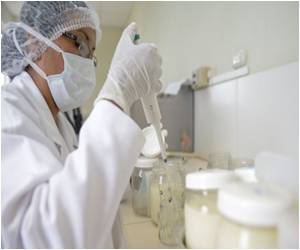All types of microbes, including many viruses and parasites, are becoming resistant to medicines and are progressively less treatable by available antibiotics.

"This is the single greatest challenge in infectious diseases today. All types of microbes, including many viruses and parasites are becoming resistant to medicines," warned Keiji Fukuda, WHO’s assistant director general for health security, voicing particular concern over bacteria that are progressively less treatable by available antibiotics. "This is happening in all parts of the world, so all countries must do their part to tackle this global threat."
A year ago, WHO issued a hard-hitting study on the phenomenon, cautioning that without significant action the world would be headed for "a post-antibiotic era", where people will be dying from common infections and minor injuries.
The UN agency has since conducted a survey of 133 countries asking governments to assess their response to resistance to antimicrobial medicines used to treat conditions like pneumonia, tuberculosis, malaria and HIV.
While a lot of work is being done to address the problem, Wednesday’s report -- which breaks down the data on a regional basis and does not provide country-specific information -- warned that far more was needed.
- Situation Alarming -
Advertisement
Only 34 of the 133 countries that took part in the survey had comprehensive national plans in place to fight resistance to antibiotics and other antimicrobial medicines, the report said.
Advertisement
Many countries also lack standard treatment guidelines, which hikes the possibility of overuse of the drugs by both doctors and the public, it warned. "Both overuse and misuse of antimicrobial medicines accelerates the emergence of resistant microorganisms," it stressed.
Monitoring of the use of such drugs was also "infrequent" in most regions, although European countries had made progress in this area, WHO said. The lack of oversight is especially worrying since public awareness about the dangers of misusing antibiotics remains low in all regions.
"This situation is alarming," the report said, adding that many people continue to believe that antibiotics can be used to fight viral infections, which is not the case.
Even in Europe, where public information campaigns are common, half the population believes viruses can be fought with antibiotics, it found.
Source-AFP














